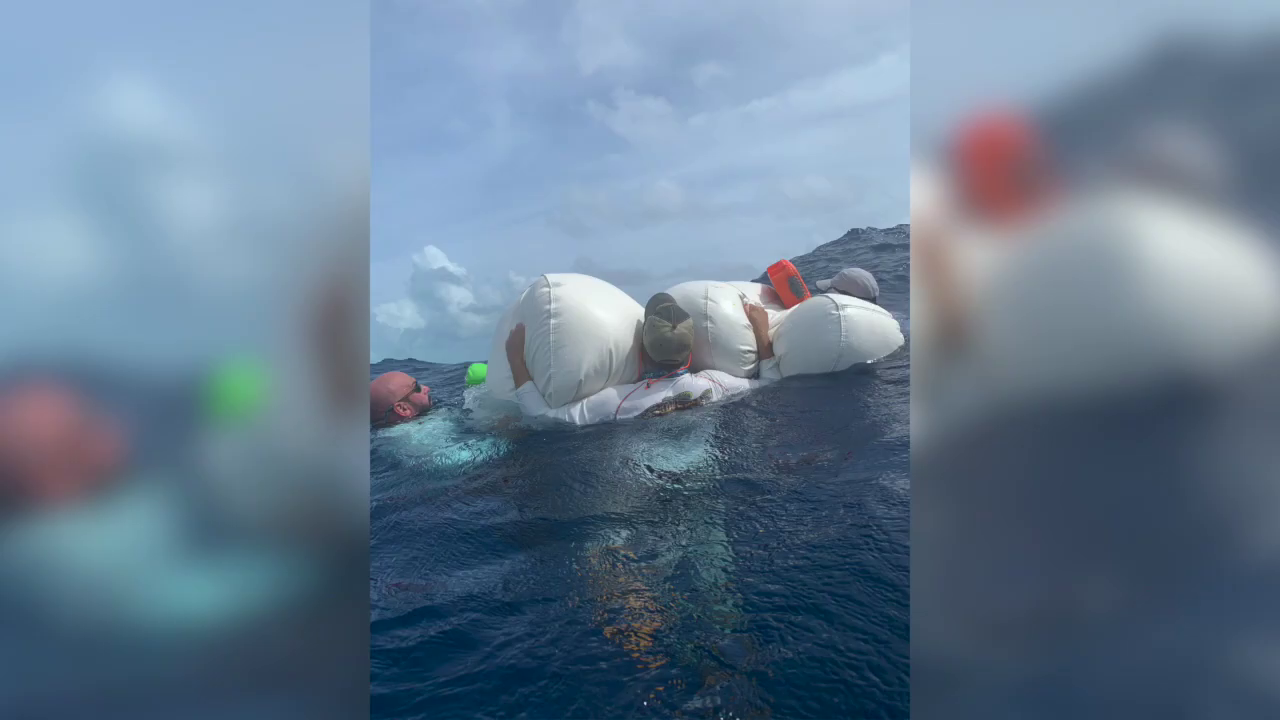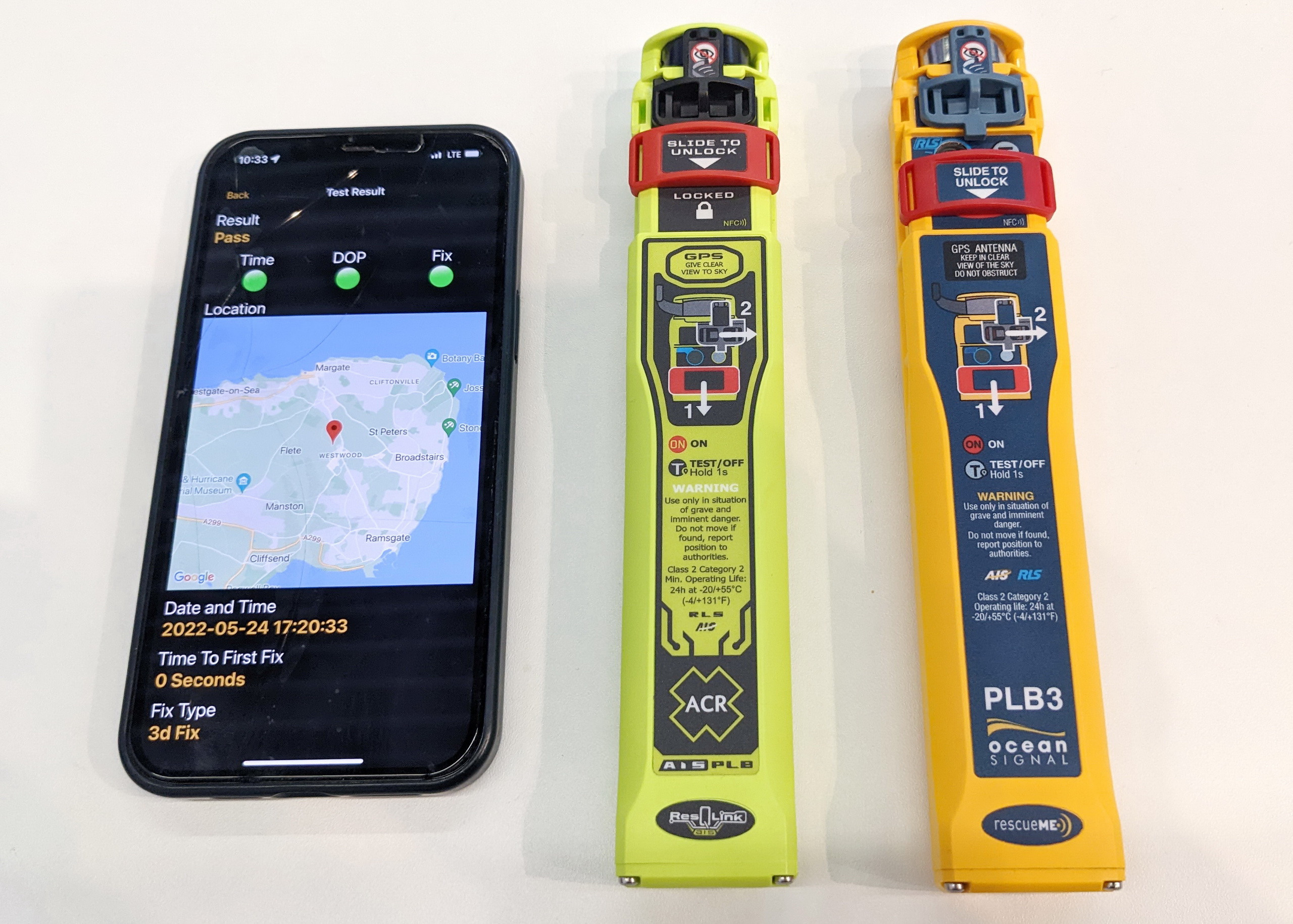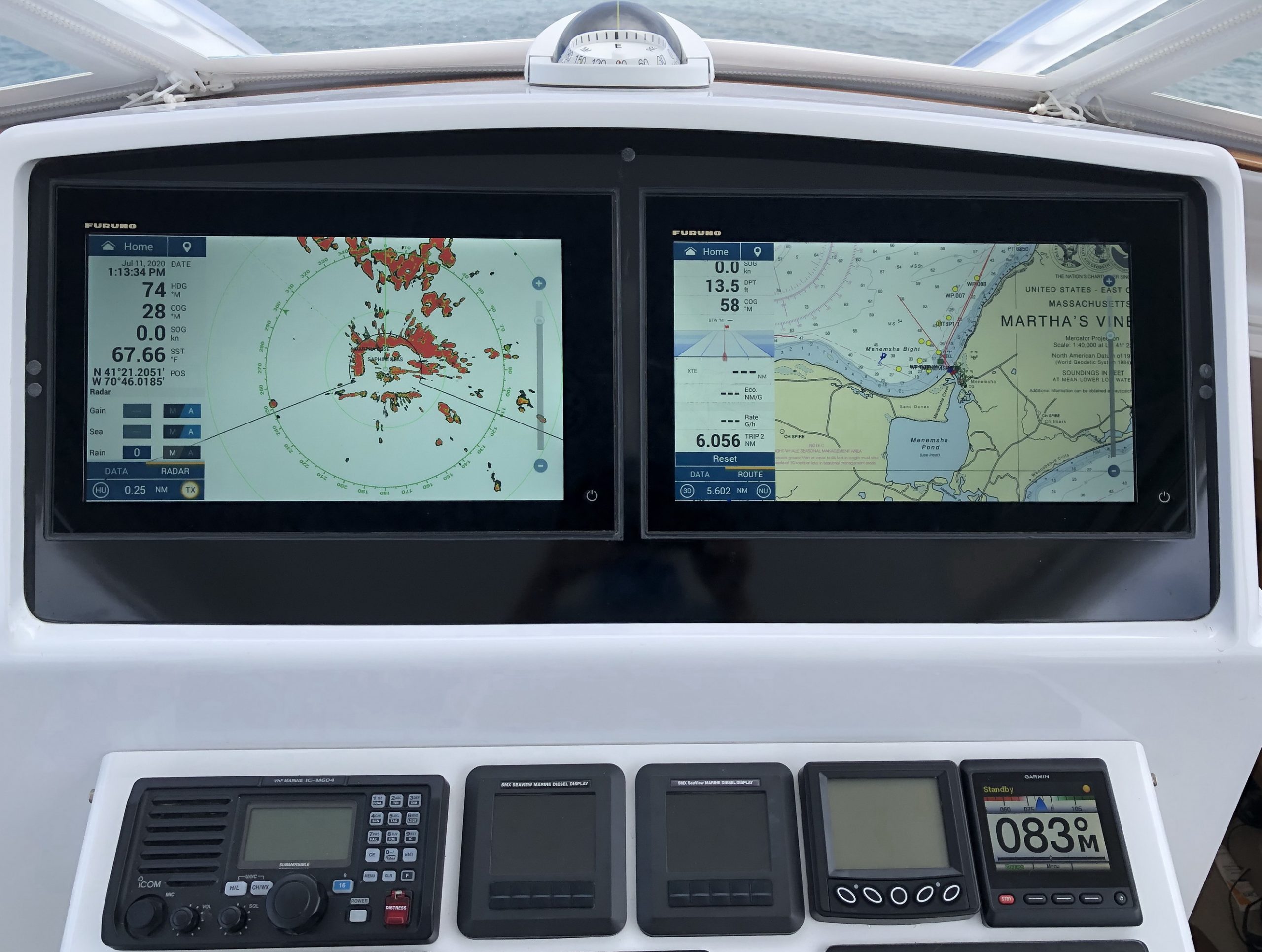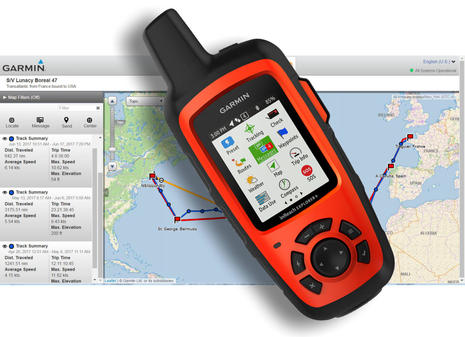ACR: Search and Rescue Operation off Key Largo Saves Five Lives

Fort Lauderdale, FL on April 6, 2022 – Sea angler Jacob Tanner, from Broward County, Florida, has told how activating an ACR Electronics EPIRB (Emergency Position Indicating Radio Beacon) saved his and four other lives when a day out fishing went terrifyingly wrong.
Jacob had taken his uncle and three of his uncle’s friends out in the family’s 25ft leisure fishing boat off Key Largo and had started kite fishing while drifting in around 150ft of open water. Waves were about 5 or 6ft, but slow rollers quite a distance apart.
Jacob takes up the story in a new ACR interview: “There were no problems, everything was going great. Everyone was having fun.”
He looked down and saw a few inches of water in the floor well, but that was not unusual, so after making a couple of checks he started fishing again.
However, everything was far from normal. After feeling water go over his boots, he tried to start the engine, but nothing happened. Turning round, he saw that the right corner of boat’s stern was already under the water.
Then everything went very quickly wrong.
Jacob said: “In about 20 or 30 seconds the water rushed in. One guy was inside the boat’s console opening up the door to get the lifejackets and it locked on his leg. So, we’re trying to get that open and I’m trying to hail mayday on the radio. Everything happened so fast. I had my phone in my hand and the boat flips over, all within 15 to 30 seconds.”
The man was freed from the door, but, as the boat flipped completely over, a line caught around Jacob’s and another man’s legs. He said: “My mom always tells me to break this habit, but I was able to break the line with my teeth.”
It was 80-pound braid, so that was no mean feat.
The five men found themselves in the water. The boat had completely sunk and they had no lifejackets. They had gone down in the console. Jacob, who played water polo for five years, was able to tread water holding his cell phone out of the water, while the other four floated on two plastic bean bag chairs that had been on deck.
Jacob had set off that morning with a Go Box containing the EPIRB radio, but it had been in the console and disappeared with the boat.
Then what seemed like a miracle happened.
The box containing the life-saving ACR EPIRB suddenly floated to the surface, right next to Jacob who grabbed it and set it off. He then also managed to call 911 on his cell phone.
Despite his phone going in and out of service, he managed to contact the Monroe County Sherriff’s office who set up a three-way call with the U.S. Coast Guard. They kept in touch as a major search and rescue operation swung into action centered on the EPIRB signal.
After being in the water for about two hours they were rescued by a Florida Fish and Wildlife Conservation Commission (FWC) Contender boat. It was only when they were safely on board that Jacob saw the many coastguard boats and a helicopter circling overhead, all drawn to their exact location by the EPIRB signal.
Asked about the life-saving device from ACR Electronics, he said: “I take it everywhere, whether I am in the Glades out hunting, fishing, duck hunting, now every time I go offshore I have it on my side or in a bag with me. Without it, honestly, I probably wouldn’t be sitting here right now.”
All survivors who activate their ACR 406 MHz beacon in a rescue receive a free replacement beacon for sharing their story through the ground-breaking ACR SurvivorClub initiative.
Jacob Tanner tells his story of the rescue in a new video released by ACR Electronics.
This April 6th, the 10th annual 406Day campaign will raise awareness about 406 MHz beacons by promoting the importance of EPIRBs, PLBs (Personal Locator Beacon) and ELTs (Emergency Locator Transmitter). ACR Electronics is urging boaters, outdoor enthusiasts and aviators to understand the life-saving features of 406 MHz beacons, as well as the responsibilities of owning a device, so they can enjoy the outdoors safely this year and help the emergency services to find them quickly when a rescue operation is necessary.
Panbo publishes select press releases as a service to readers and the marine electronics industry. The release contents do not reflect the opinion of the editors and are not fact checked by the editors














I think that detailed marine “near miss” reports like this can be quite valuable. A few aspects I noticed:
* Yes, the skipper was able to use his cell phone while treading saltwater — even took the top photo himself — but let’s note his youth and five years of experience playing water polo!
* I know from a memorable visit to the Miami Rescue Coordination Center that Gulf Stream currents can considerably complicate victim location. So a GPS-equipped EPIRB — some still aren’t — can really help the SAR folks (and I presume that’s what happened here).
* Those beanbag chairs seen serving as flotation gear in the top photo probably made a real difference to this outcome, and they’re also great for relaxing even when a smallish boat is pounding along at speed.
Finally, it’s 406Day: https://www.acrartex.com/news/406day-beacon-awareness-campaign-epirb-plb-elt/
I’m guessing he’ll have an automatic bilge pump with audible alarm on his next boat! The fishing must have been really good if the first thing you notice is the engine not starting because the transom just went under.
The habit of keeping essential safety equipment in locked/latched compartments does seem to be widespread, especially on smaller vessels. A big shout-out to ACR for having an EPIRB smart enough to free itself!
Amazing self-rescue! Preparedness counts. PFD’s need to be “readily available” per USCG. Throwable PFD must be “immediately available”.